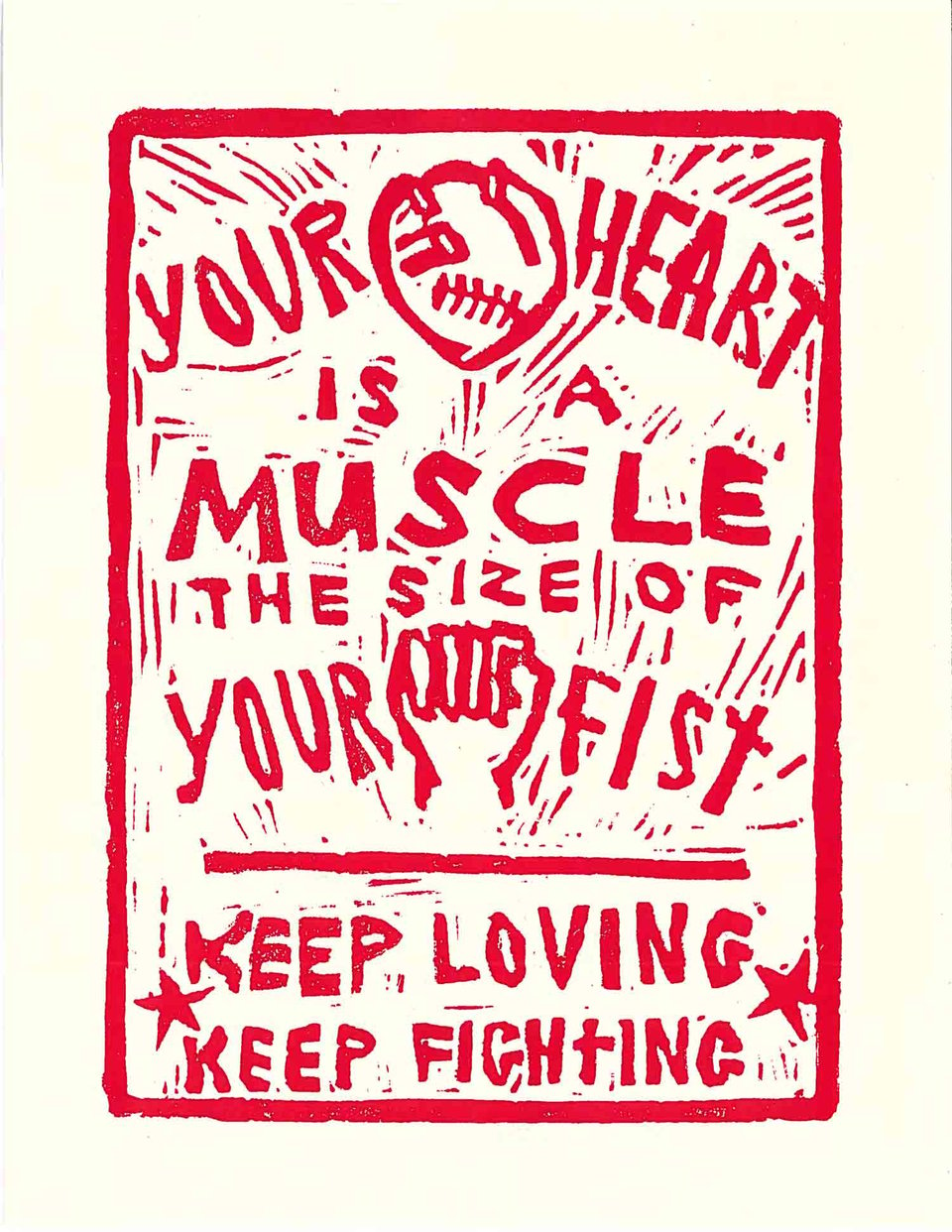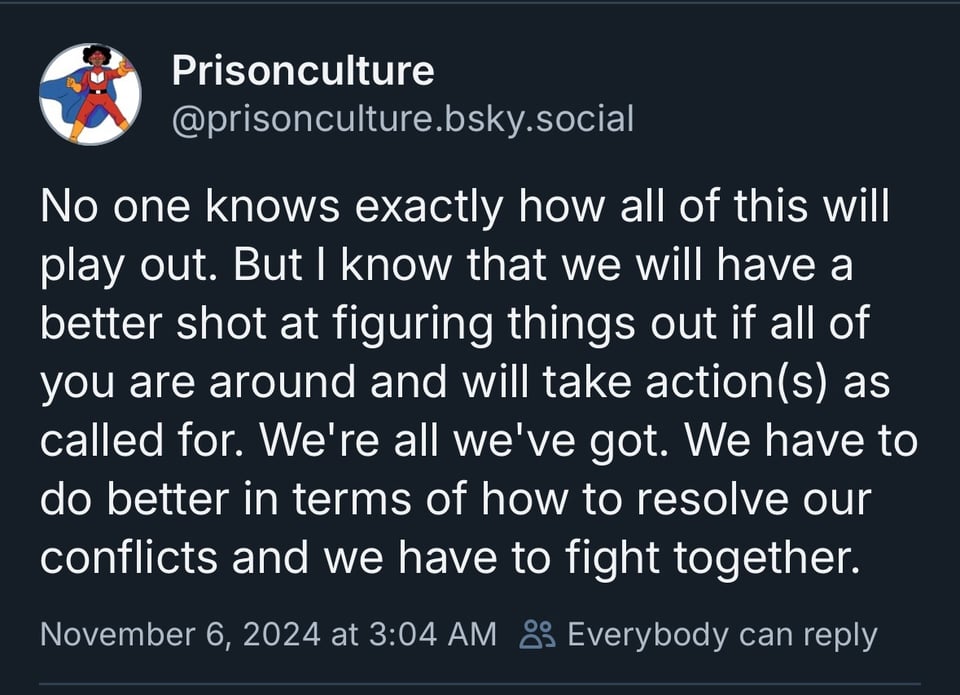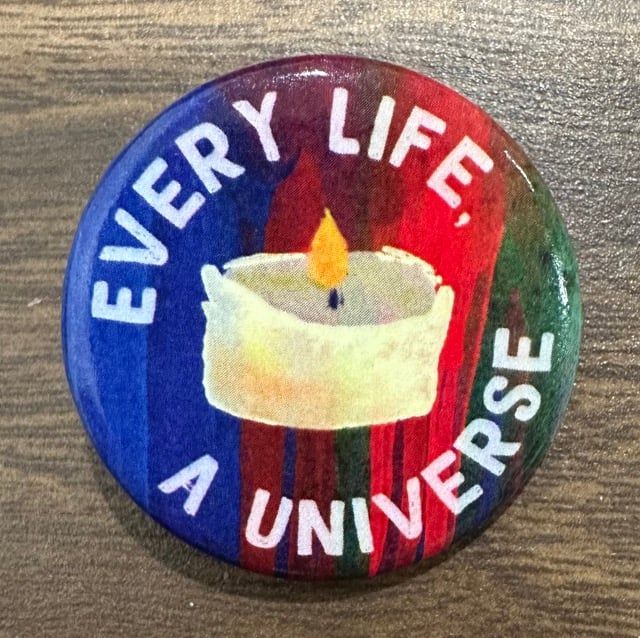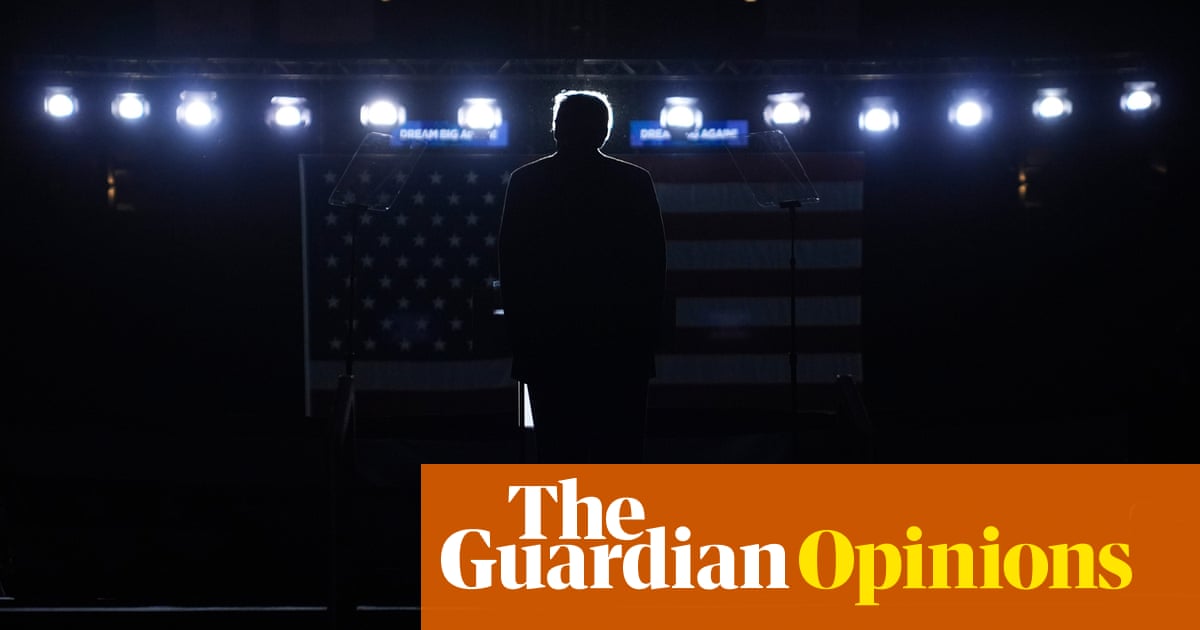Keep Loving, Keep Fighting
What a second Trump presidency means for activism, community, and the need for genuine participation.
Scattered Thoughts on Another Trump Presidency

I’m writing this on the morning of the third day after Trump’s election. The takes are rolling in now. I don’t have much to offer on this front. Personally I think it’s too early to say with too much certainty why specific strategies failed or which would have succeeded. But I respect that some people make their living by offering these explanations.
The explanations that feel most compelling to me are ones that name large-scale trends which compensated for Trump’s sloppy, hateful campaign. For example the fact that incumbents lost globally. When people are hurting economically (and yes, despite the U.S.’s strong economy, people inflation was painful here) they take it out on the party in power. Secondly, the media landscape is fractured, wracked by disinformation, and largely run by billionaires with right-leaning ideologies. I also appreciated this view from John Ganz:
Having a clear vision of things, even if it is unpleasant or dark, beats no vision or an unclear one. Trump’s campaigns had a clear mythos: a story about what America is and was and where it is going. No Democratic candidate that’s run against him has been able to articulate an opposing vision.
I have a lot of thoughts as well about the political effectiveness of harnessing resentment, but I’m going to wait before I try to put them all into words. For now I’ll say this: for at least a decade, people have been sounding the alarm about social isolation. White men in particular seem to be lost and lonely. The broader left hasn’t yet found an alternative to the toxic validation offered by Joe Rogan, Andrew Tate, and Donald Trump. We are all now paying the price.
So where does this leave us? I’m very sad and worried about what the future holds. I read and thought a lot about life in an authoritarian country, but I have no idea what it actually means to live in one. There are many wise people who have thought more deeply about this and I’m going to share their advice in the recommendations below after sharing just two thoughts of my own.
The first, is that Trump’s win doesn’t fundamentally change my approach to activism and living my life. Here is what I wrote in July:
I am focusing my energy on relationships so I can be emotionally and psychologically resilient through an uncertain future. I need friends and loved ones who will strategize with me, make sense of big events with me, teach me new ideas and skills, and laugh and share meals with me. It’s impossible to predict what political, economic, or ecological crises are coming. But I know the fundamental building blocks of human connection won’t change and they can help me weather any storm.
The most powerful tool we have at our disposal is love. By this I mean radical love rooted in trust and a willingness to fight for each other. This love sees our futures are interconnected. If we are going to survive whatever chaos comes, we are going to need to cultivate communities grounded in this kind of love.

The second thing I want to say is that the time for political hobbyism is long over. I first heard this term in a Yom Kippur sermon this year and I haven’t been able to stop thinking about it. It’s important to be an informed citizen. Listening to The Ezra Klein Show or The Daily, reading David Leonhardt and Matt Yglesias, or watching MSNBC are all valid ways to learn about what’s happening in the world. But too many people conflate this passive consumption of information with “participating” in politics. This creates two problems.
Firstly, the vast majority of Americans don’t experience politics this way. They don’t have time and/or interest to read newsletters or listen to podcasts that aren’t about sports, celebrities, or true crime. So when you cultivate your political worldview in this way, you are prone to misunderstanding the electorate.
But more importantly, conflating political passion with political participation means you don’t do the things that have to get done to win. Elections are won through canvassing, phone banking, and so many other efforts, but they’re also won through political education and cultural work and organizing that happens each and every day.
Political participation requires so much more than these electoral volunteering. Donald Trump’s election is a collective failure. There’s no one thing that led to his victory. But college educated, professional managerial class people swapping political hobbyism for political participation was certainly one factor. We can no longer abdicate our responsibility to take an active role in politics. We need to know our political leaders at the local, state, and federal level. We need to pressure them consistently to take action on the issues that materially improve people’s lives. We need to be a part of communities who help us take action collectively and therefore more effectively.
I’m not sure if even these types of political action will be possible, let alone effective, in the years ahead. Organizer Daniel Hunter created a website and workbook that allows you to play out different scenarios under Trump’s second administration. I highly recommend it as a way of preparing for various worst case scenarios and identifying your role. Whatever comes next, I’m certain we need to leave political hobbyism behind. Now is the time to do the more difficult work of building relationships and building power slowly and steadily until authoritarianism is defeated.
Other Recent Writing

How Do We Atone for Collective Failure? • Buttondown
A Yom Kippur reflection on complicity, silence, and the need for collective action
Other Recommendations for Reading, Listening and Watching

10 ways to be prepared and grounded it Trump wins | Waging Nonviolence
The key to taking effective action if Trump wins is to avoid perpetuating his goals of fear, isolation, exhaustion and disorientation.

Living through the Next American Political Order: Institutions Will Comply, and You Will Be Made Complicit
I woke up this morning to see that Donald Trump had been elected president again. Like roughly half of American voters, this is not the outcome that I had hoped for. Politics, like history, is chao…
